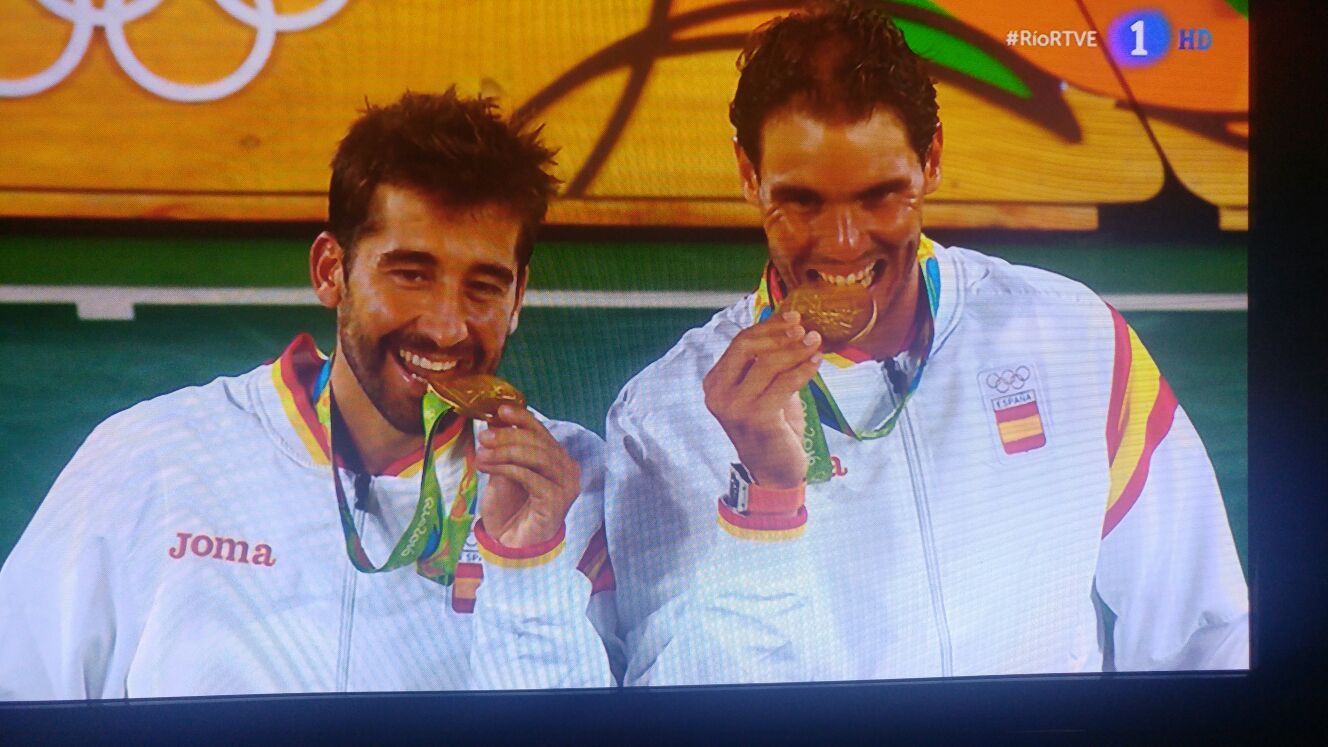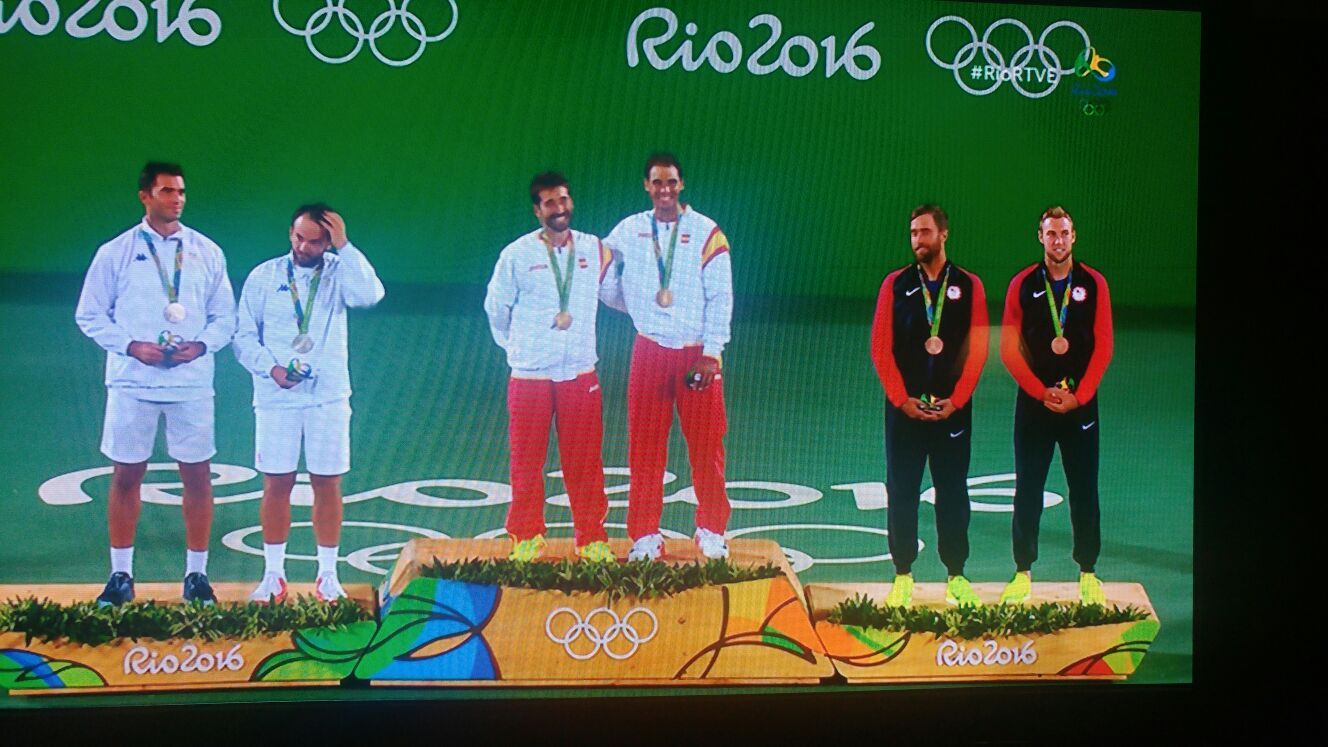Correct General Hercules. I'll expound on this for awhile, so anyone reading, get a cup of your favorite beverage and sip it slowly.

Reminders of this thread's title appear to be continuously needed. No, it is not a positive subject matter, but it is what it is. Everyone is free to create their own thread and topic about any player, tournament, regarding the subject of tennis.
It's the player's PR manager's task to always put a positive spin on everything the player does to make him look good. Reality is besides the point.
It's the sponsor's job to show players promoting their product in the most positive light. The actual quality is beside the point.
It is the cheerleader's job to spearhead the rah-rah's, put on the happy face, and get the crowd going to scream for victory no matter the actual score. It is irrelevant.
It is the task of the interested impartial observer to see the facts as they are when attempting to discuss and draw conclusions. The facts and conclusion may not always be pleasant, but that should not deter one in arriving at the proper conclusion. Delusion is the term for those who want to dismiss, alter, or obscure the facts to arrive at a rosy or desired conclusion.
Discussion in this thread should be about when, how, and why this decline happened, and also about if he can or wants to reverse it and how that can happen, or not.
Injuries are part of almost all sports. Aging and natural decline are as well. These things are negative factors with respect to any player's game. To compensate for them one needs to work to be as fit as one can be, and have a little luck. Even the fittest athlete can suffer a freak injury. Look at Muster. He was putting something in the baggage compartment of his car and some other car hit his and took his knee out; a freak injury. Still, it is how one deals with injuries that becomes important. In his case, he went through months of work while an invalid to rehabilitate himself and get back to playing tennis at the highest level. Even Federer is going to have to go through a similar trial for the rest of the year.
In this case, the true tennis fan should be and are interested in only what may be the best solutions and outcome for Rafa's tennis. The best solutions for his tennis are doing those positive things in practice and his game that will give him the best chances to rise once again. The worst are those things that do not contribute or actually harm his game. As longtime observers, one can hope to offer learned opinions and perspective, and hopefully engage in discussion about them. This is a forum for that. We've seen and noted what Rafa did to play at his best, and which things happened before, and during his decline.
Clay Death has followed Rafa's tennis closely from the beginning, not as just a fan, but a keen observer of the game. He has seen everything an observer can see. He saw Muster, he played tennis in a similar style, and knows what kind of fitness it takes to play the style of tennis that Rafa plays - the topspin tactical and power game. He knows exactly that what a player puts into that game is what the player can get out of it. Nothing more, nothing less.
He has defended Rafa's play, victories and losses countless times and was unfairly attacked by his opponent's fans in other forums in the past. But he has also criticized Rafa when he has seen things going wrong and been attacked for "being negative" by some of Rafa's fans, even though he is simply calling things as they are. If the good general has repeated his mantra, it is because things remain unchanged, or he observes there is little or no improvement.
Things in the last three seasons (2014, 2015, 2016) have drastically gone downhill for Rafa, and it didn't start there, the pattern can be identified further back. It's a negative state of affairs for his tennis, there is no avoiding or denying that. If Rafa wants to improve his tennis, he can't run or hide from it, nor should his fans do so. But one can still believe there is a way forward for him, if he wants to make a serious effort. For me, that is a huge positive. If he doesn't want it any longer, then the outcome is obviously a huge negative with respect to his future tennis career.
In this writer's opinion, the way forward ideally involves taking the time to get fully healed, both physically and mentally, so his intensity can return unimpeded, so he can work hard to be as fit as he can be, play hard, start winning, and take another run at Roland Garros next year and walk away a winner on his own terms.
No, we are not his coaches, but I believe I've seen enough of him and others to be able to make good suggestions. But it's not as you say, rocket science anyway; the model is there - 2013. Forget Australia. It needs to start early on the clay. I think he needs to go back to his roots and play the game the way similar to the way he played before with a couple of minor adjustments. His desire to be competitive with the best on hard courts has harmed his clay game. It has hurt his timing. Sometimes it seems that he doesn't even know where to stand on the court. Forget those excuses about the game getting too fast. Work and adjustments are needed.
Horizontally, he can make an adjustment for being a step slower due to aging, by positioning himself more toward the center and taking some backhands, rather than parking too far on his backhand side to run around the backhand to hit the forehand. Then he can get to his forehand wing in time to make the banana shot. Vertically, he doesn't need to stand on the baseline to return, especially on clay, but he shouldn't be in the stands either. He needs to be close enough to hit returns with enough power to hit past the service line. Short returns have killed him against decent aggressive players like Fognini, who had never defeated him before 2015, not to mention Djokovic. So he needs to combine good positioning with better conditioning to deliver enough power when needed.
Rafa, as any player, needs to play with confidence to be at his best. To do that he needs to work to do what is needed to win. As in 2013, he should start next season at a lower level - 250's and start winning matches and tournaments against the lesser lights and gain confidence. Beat players like Fognini. Then tackle the elite Murray's and Djokovic's of the tennis world. And be prepared for the rising higher quality younger players. It doesn't get easier; time does not stand still.
That's the way it is,
masterclass



